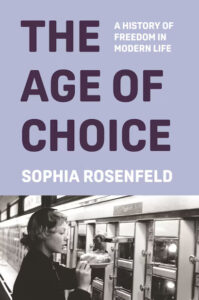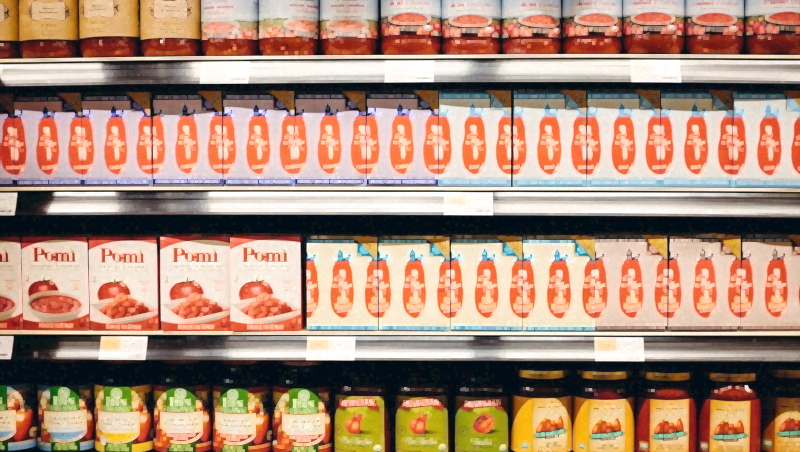
Cundill Prize Finalist Sophia Rosenfeld Recommends Lorraine Daston, Alain Corbin, Sarah Igo and More
I am a historian who likes to write about ideas and concepts that have become so ubiquitous and ordinary that we don’t normally talk or even think much about them. You might call this a form of intellectual history. But the goal for historians like me is not just to explore the roots or backstories of our most basic assumptions; it is also to de-naturalize them in the hope that imagining new possibilities for our own world will become easier.
Choice struck me as a good candidate for this kind of treatment because even as it has become the meeting point of our political and our economic lives, equally central to advertising campaigns and human rights decrees, it is rarely discussed as such. It is generally just used as a stand-in for freedom. I try in The Age of Choice to explore both how choice-making came, over the last three plus centuries, to garner this remarkable status and what the consequences, good and bad, of this trajectory have been. To that end, I draw in this book on the work of many wonderful historians before me with interests in other taken-for-granted concepts and social practices, as well as sources related to choice itself.
*

Lorraine Daston, Rules: A Short History of What We Live By
Rules: A Short History of What We Live By is an eye-opening recent account of how something as fundamental as the different kinds of rules by which we organize our existences have evolved, in practice and theory, from antiquity to the present. After reading this book, you won’t look the same way at shaking hands, getting on a highway at a busy interchange, or buying groceries on your computer. Daston’s specialty is the history of thinking itself.

Alain Corbin, The Foul and the Fragrant: Odor and the French Social Imagination
The Foul and the Fragrant: Odor and the French Social Imagination is essentially a book about the declining tolerance for strong smells in 18th and 19th-century France. But it is more than that. In this and many subsequent books, Corbin makes the case that our sense perceptions and our emotions also have histories that can be recovered—and that doing so helps explain much about our collective social, political, and even everyday familial lives.

Sarah Igo, The Averaged American: Surveys, Citizens, and the Making of a Mass Public
Writing about a very different time and place—20th-century America—Sarah Igo convincingly demonstrates how an ordinary social practice we might not have noticed—the taking of surveys and polls—has reshaped our sense of ourselves in the modern era. This is social, political, and intellectual history rolled into one.

Ian Hacking, Historical Ontology
One of the best accounts ever of the power of categories to shape reality is Ian Hacking’s Historical Ontology. Despite its off-putting title, this essay collection deserves a place on the shelf of anyone who is interested in understanding the extraordinary effects of the words by which we label the world around us.

Natalie Zemon Davis, The Return of Martin Guerre
The Return of Martin Guerre is a book to which I always return. It is, at once, about the exceptional creativity necessary to turn shards of evidence about the past into a gripping historical narrative and about the importance of epistemic modesty on the part of anyone trying to do so. One finishes the book, which can also be read as a tale about a famous impostor in 16th-century France, realizing that “the truth,” at least in any clearcut way, always evades the writer of history even as he or she must continually strive for it.
Finally, for thinking about the history of choice—how and when we practice it, the mistakes we make in doing so, the consequences for all involved, and more—I strongly recommend reading novels from different times and places. Some key early French- and English-language ones for me were: Frances Burney’s Evalina; Flaubert’s Madame Bovary, Honoré de Balzac’s Le Bal de Sceaux, Henry James’s Portrait of a Lady, and any and everything by Jane Austen. For fans of more contemporary fiction, you also can’t go wrong with John Barth’s The End of the Road, Sylvia Plath’s The Bell Jar, Vivek Shanbhag’s Ghachar Chochar, Alejandro Zamba’s Multiple Choice, Lena Andersson’s Acts of Infidelity, or Margaret Wilkerson Sexton’s A Kind of Freedom. A provocative recent addition to this list is also Neel Mukherjee’s Choice: A Novel. When it comes to reading on choice, which is both everywhere and nowhere, it is indeed very hard to choose!
__________________________________

The Age of Choice: A History of Freedom in Modern Life by Sophia Rosenfeld is a finalist for the 2025 Cundill History Prize.
